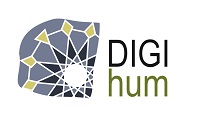Digital Humanities (DIGIHUM) 2016-2022
DIGIHUM uses digital technology and state-of-the-art computational science to collect, manage and analyse research data in the humanities and social sciences. The programme examines digitalisation as a cultural and social phenomenon.
Digital humanities is a new concept that refers to the application of new technology in humanities and social sciences research. The Digital Humanities Academy Programme is designed to address novel methods and techniques in which digital technology and state-of-the-art computational science methods are used for collecting, managing and analysing data in humanities and social sciences research as well as for modelling humanities and social science phenomena.
There is a strong tradition of digital humanities in Finland. By bringing together the existing best knowledge and skills in this field, Finland will put itself in a strong position to develop into a world leader in this rapidly evolving field. The programme is grounded in the needs of basic research, but technological advances in this area also have great potential for practical applications that warrant research.
The development of research in these areas will require broad-based collaboration involving not only researchers in the field, but also technology experts, representatives of memory organisations (libraries, archives) and database administrators and developers. One aspect of the programme is to examine digitalisation as a cultural and social phenomenon.
Digital Humanities programme had a call for funding period 2020-2022. The subcommittee of the steering group decided to fund five consortia for the period 2020-2022.
